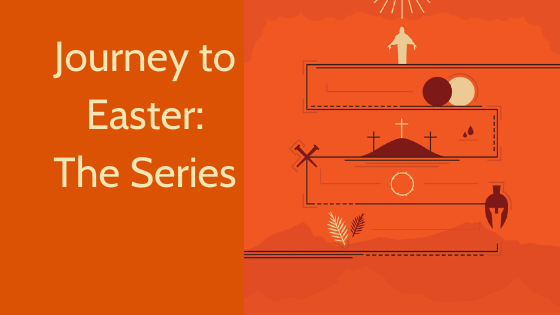
I have some news! A brand-new Bible study Journey to Easter released this week just in time for Easter. (Yes Easter! We passed Groundhog Day. Now we just have Valentine’s Day, St. Patrick’s Day, first day of spring and we’re there.)
If you remember the Journey to Easter series from a couple of years ago, this study greatly expands on those posts with insights into the passages and thought-provoking questions that challenge you to think deeply about your faith and your walk.
Over seven sessions, you’ll stop at a different place with Jesus, beginning in the Upper Room on the night of His betrayal and ending in the locked room after His resurrection. Each stop has its own distinct role to play in the unfolding redemption story. While you’re there, you’ll have a moment to observe, to reflect, to consider, and ultimately to worship the Savior who loved us and gave Himself for us.
I think my favorite stops were The Garden and The Locked Room. Want to sample it? Download the first chapter, The Upper Room.
Journey to Easter is available as a paperback from Amazon and as an e-book at BN, Apple, Kobo and other favorite retailers.
Thanks for reading! (PS. Thanks for your patience and understanding if you already knew about the release.)





